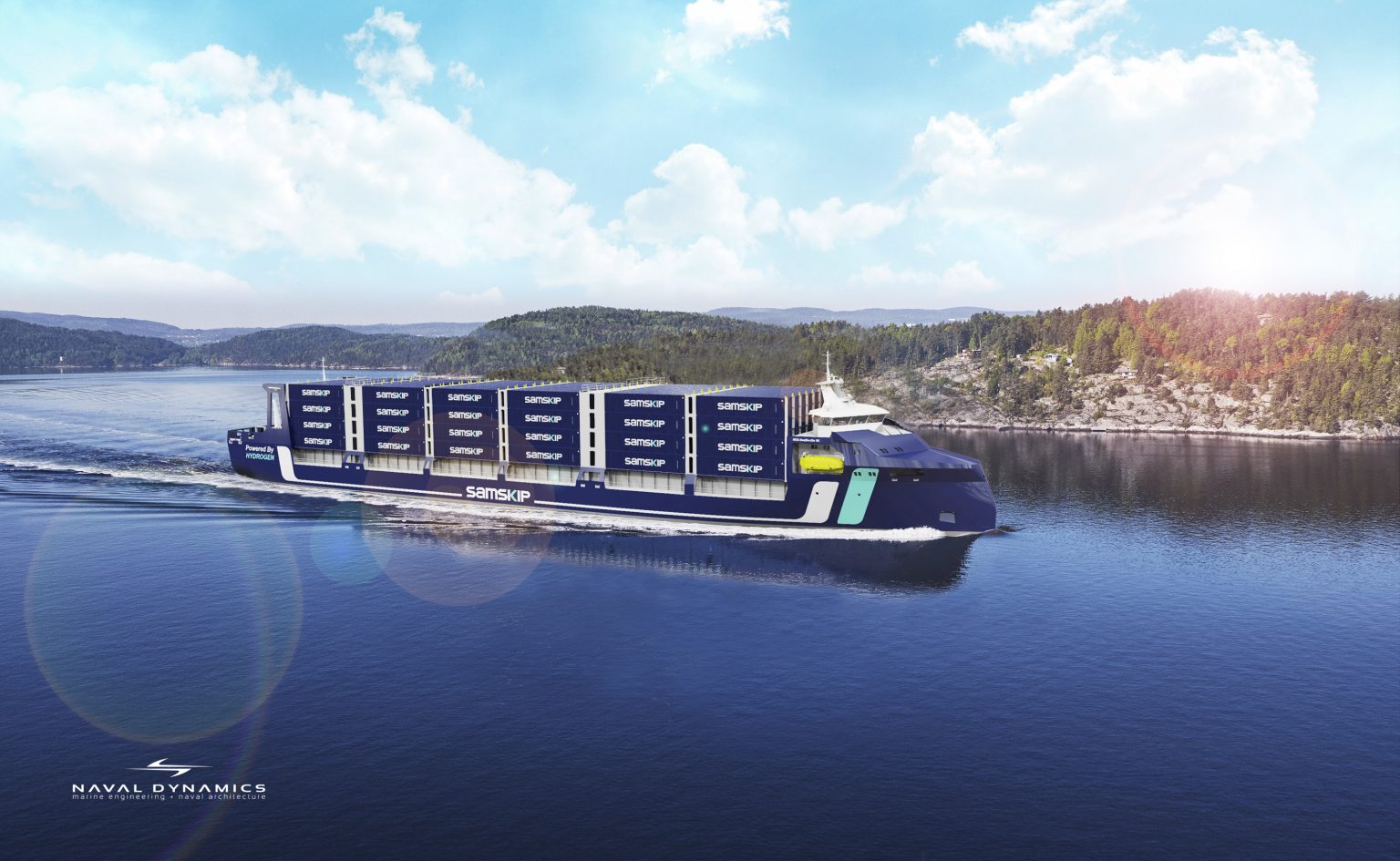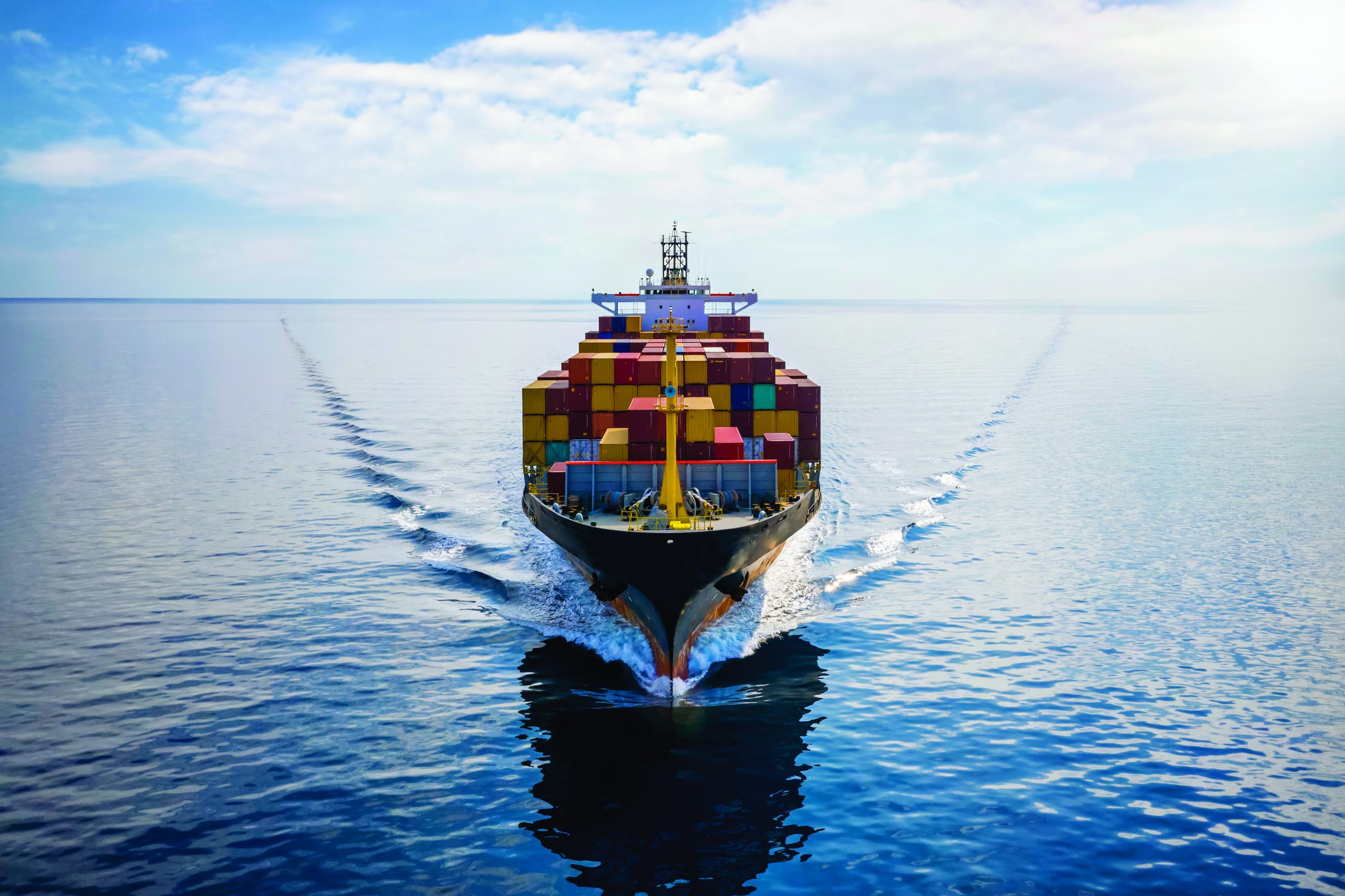Fuel cell developments
Fuel cell-powered box ships to operate northern European route

Technology group ABB says it is to provide complete power, propulsion and automation systems for two newbuild short-sea container ships f Netherlands-based Samskip Group.
ABB is not saying how much the order, booked in the second quarter of 2023, is worth.
Built by Cochin Shipyard Ltd, the largest shipbuilding and maintenance facility in India, the 135-metre ships are due for delivery in Q3 and Q4 of 2025, respectively. Both vessels will be operating between Oslo Fjord and Rotterdam, a distance of approximately 700 nautical miles.
In addition to the integration of hydrogen fuel cells, ABB’s package includes the new, compact version of ABB Onboard DC Grid power distribution system that will ensure the optimal use of energy on board. The vessels will also feature ABB’s energy storage solution control, with the industry-leading automation technology, ABB Ability System 800xA, ensuring seamless operation of onboard equipment. ABB Ability Remote Diagnostic Systems will provide 24/7 remote support to optimise safety and performance.
ABB says: “Fuel cells turn the chemical energy from hydrogen into electricity through an electrochemical reaction. With the use of renewables to produce the hydrogen, the entire energy chain will be clean. Hydrogen fuel cell technology is considered as one of the most promising solutions to support the shipping industry’s decarbonisation agenda, with the potential to significantly reduce greenhouse gas emissions and increase energy efficiency.”
Samskip’s vessels will each be powered by a 3.2 MW hydrogen fuel cell , with diesel generators installed for back-up. The logistics group, which aims to achieve net-zero by 2040, anticipates that each vessel will be able to avoid around 25,000 tonnes of CO2 emissions a year when powered by fuel cells and by using green shore power at the port of call. According to ABB they are expected to perform at the same level as Samskip’s conventional vessels.
Meanwhile the UK-Government funded HyTime project is reported to have completed real-world testing with lead partner Bramble Energy providing its fuel cell system along with custom engine builder Barrus.
Bramble Energy has designed, developed and deployed a unique marinised fuel cell system for use within a narrowboat – a first of its kind application.
The completed project demonstrates Bramble’s printed circuit board fuel cell (PCBFC) technology in a real-world environment, serving the company says, “as a showcase of hydrogen’s vast potential to decarbonise the marine sector”.
The system is said to offer a solution to replace diesel engines in boats which could potentially save 12 tonnes of CO2 annually per vessel.
The hydrogen-powered narrowboat will now begin a testing programme on UK inland waterways with data collected helping Bramble develop future marine PCBFCs.
Bramble says: “PCBFC technology provides a viable route for accessing the hydrogen economy as they can be manufactured in almost any size or arrangement at much greater speed and scale than traditional electrochemical stacks, at a much lower cost.”
Image Credit: Naval Dynamics
get
in touch

Constructive Media
Constructive Media
Hornbeam Suite
Mamhilad House
Mamhilad Park Estate
Pontypool
NP4 0HZ
Tel: 01495 239 962
Email: ibia@constructivemedia.co.uk

On behalf of:
IBIA London Office
Suite Lu.231
The Light Bulb
1 Filament Walk, Wandsworth
London, SW18 4GQ
United Kingdom
Tel: +44 (0) 20 3397 3850
Fax: +44 (0) 20 3397 3865
Email: ibia@ibia.net
Website: www.ibia.net

Emails
Publisher & Designer: Constructive Media
ibia@constructivemedia.co.uk
Editor: David Hughes
anderimar.news@googlemail.com
Project Manager: Alex Corboude
alex@worldbunkering.net
